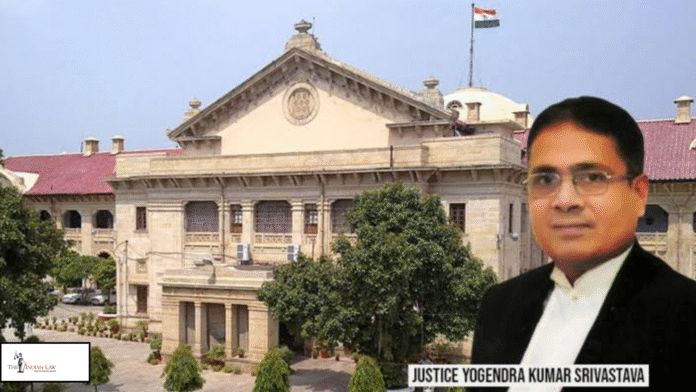UP Revenue Code | Co-Bhumidhar Can Seek Land Use Change For Own Share Only After Legal Division Of Joint Holding: Allahabad HC
🔷 Introduction
- The Allahabad High Court recently ruled that a co-bhumidhar (joint landholder) can apply for land use change only after the legal partition of the jointly held land.
- The ruling was delivered by Justice Saurabh Lavania, addressing a key dispute under the Uttar Pradesh Revenue Code, 2006.
🔷 Case Background
- A co-bhumidhar applied for land use change (from agricultural to another purpose) under Section 144 of the UP Revenue Code, 2006.
- The land in question was jointly owned, and no formal partition had been done.
- The application was rejected by revenue authorities on the ground that individual rights over specific land portions cannot be asserted without a legal division.
🔷 Court’s Key Observations
- Joint Ownership Structure: Co-bhumidharis are considered joint owners of the entire holding, not of specific portions unless a legal partition is completed.
- Possession Doesn’t Mean Ownership: Actual possession or use of part of land by a co-owner does not give legal authority to act independently on that portion.
- Title Clarity Required: To apply for land use conversion, the applicant must have clear title and demarcation of land, which only happens through legal partition.
🔷 Relevant Legal Provisions
- Section 144, UP Revenue Code: Allows application for change of land use (agricultural to residential, industrial, etc.).
- Section 11, UP Revenue Code: Defines the status of co-bhumidharis as joint owners of land.
- Chapter XI (Sections 116–128): Deals with the legal procedure for partition of holdings under the Revenue Code.
🔷 Court’s Verdict
- A co-bhumidhar cannot seek land use change for any specific part of the land unless:
- The land is legally divided, and
- The specific portion is officially allotted to that co-owner.
- The court upheld the revenue authority’s decision rejecting the application.
🔷 Implications of the Judgment
- Prevents Misuse: Stops co-owners from unilaterally altering land use without consensus or legal rights.
- Promotes Legal Discipline: Encourages co-owners to follow due legal process before exercising exclusive control.
- Protects Rights of All Co-owners: Ensures that changes are made only after proper partition, preserving the interests of every stakeholder.
🔷 Broader Legal Significance
- Reinforces the principle that revenue records and legal status must guide land use and ownership rights.
- Aligns land management practices with constitutional and legal frameworks.
- Likely to be cited in future cases involving joint landholdings and property disputes in Uttar Pradesh.
🔷 Conclusion
- The Allahabad High Court’s ruling is a landmark interpretation of the UP Revenue Code.
- It clarifies that mere physical possession or cultivation does not allow land use conversion unless there’s a formal legal partition.
- The judgment strengthens property rights, promotes procedural integrity, and ensures equitable treatment of co-owners in land matters.


